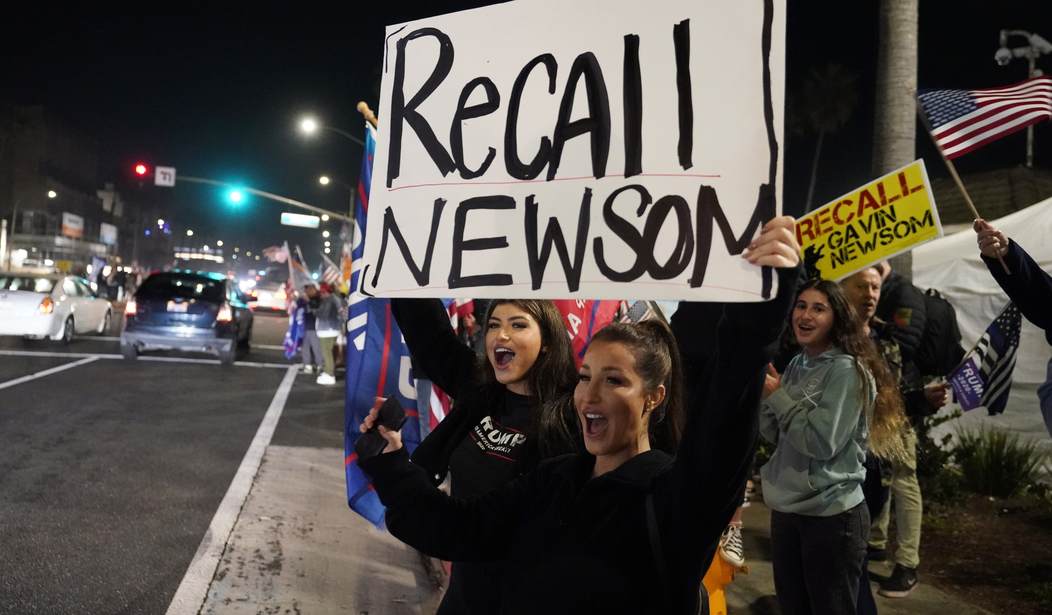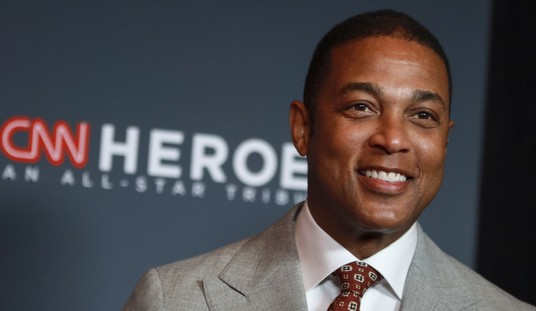For nearly a year, Gavin Newsom and his media arm ignored the “Recall Gavin Newsom” effort. Then as discontent with continued lockdowns and Newsom’s hypocrisy grew, it was described as a recall organized by dangerous far-right wing white supremacist insurrectionists. When that failed to stop the recall’s momentum – and despite stats showing that a large percentage of recall petition signers were not Republicans – Newsom dubbed the effort a “Republican recall.” Still, support for the recall grew.
Now that the latest polls show that Newsom’s in danger of actually losing his seat, the tactic is shifting again. It started as they all do, with a few influential people “wondering” on social media if this recall process is really legal, or if it should be, claiming that it’s a way for Republicans to “steal” an election they can’t legitimately win.
Enter crackpot Berkeley Law School Dean Erwin Chemerinsky, who sent a signal to progressives in the form of a super serious-sounding opinion piece in the New York Times last Friday: please file a legal challenge to this recall, even though it’s provided for in the California constitution and no one has had an issue with it until now.
And, surprise, surprise – Monday evening a federal lawsuit was filed challenging the constitutionality of the California recall – a process that has been in the state’s Constitution for 110 years. The suit – shockingly – uses the same inapplicable legal theories Chemerinsky and his co-author, Aaron Edlin, put forth in their opinion piece.
Despite their lofty titles, Chemerinsky and Edlin’s qualifications to speak on this topic are called into question because of their argument in the very first paragraph, which begins:
The most basic principles of democracy are that the candidate who gets the most votes is elected and that every voter gets an equal say in an election’s outcome.
Yes, the candidate who gets the most votes is elected. But, it is not a basic principle of our democracy that every voter gets an equal say in a presidential election’s outcome. As a California conservative voter, my vote hasn’t mattered in any presidential election. And, depending on how Chemerinsky is using the term “voter,” that might not be the case in any election. In other elections, every voter who actually casts a vote gets an equal say in an election’s outcome.
The paragraph continues:
The California system for voting in a recall election violates these principles and should be declared unconstitutional.
Come again?
Chemerinsky seems to believe that this process equals tyranny of the minority, but given the vast amount of money in California politics and the lack of a meaningful opposition party, the fact that organizers of this recall gathered 2.1 million signatures on a shoestring budget and qualified it for the ballot demonstrates it’s a true grassroots phenomenon – or the true will of the people. And, as the Daily Breeze noted, California’s recall provision isn’t the brainchild of white supremacists or Republicans:
“California’s unique brand of direct democracy sprung from Progressive Era attempts to give the People the power to check special interests and politicians. In his First Inaugural Address in 1911, Gov. Hiram Johnson argued that its opponents, “however they may phrase their opposition, in reality believe the people cannot be trusted.”
It’s clear that’s what Chemerinsky and his ilk believe, and his next assertion proves it. He believes that expecting the voters who support Newsom to actually show up at the polls to affirm that support is unfair.
By conducting the recall election in this way, Mr. Newsom can receive far more votes than any other candidate but still be removed from office. Many focus on how unfair this structure is to the governor, but consider instead how unfair it is to the voters who support him.
It’s unfair to expect these plebes to show up at the polls because they don’t know enough to know they’re supposed to, is what Chemerinsky seems to argue. And it’s unfair, he claims, because if Newsom is recalled but by a narrow margin, and the person who wins the governorship by garnering the most votes on Question 2 (If Gavin Newsom is recalled, who should replace him?) wins with only 20 percent of the vote, that more people would have voted for Newsom in the recall than voted for the new governor.
There are just a few problems with that logic train. First of all, more people will have voted for “Not Newsom” than “Newsom.” If that happens, that means that a majority of the voters don’t want him to continue. Next, it assumes that everyone who voted to keep Newsom left Question 2 blank. It stands to reason that at least a couple of the people who vote no on Question 1 will make a choice on Question 2 “just in case.”
Still, Chemerinsky believes that if Newsom is recalled and the replacement candidate doesn’t receive a larger percentage of the vote on Question 2, than Newsom did on Question 1, that means Newsom’s supporters were disenfranchised. In effect, they believe that unless the recall election is treated as a head-to-head matchup like you’d see in a traditional general election, it’s “undemocratic” and “unconstitutional.”
This is not just nonsensical and undemocratic. It is unconstitutional. It violates a core constitutional principle that has been followed for over 60 years: Every voter should have an equal ability to influence the outcome of the election.
If a person shows up to vote, and votes on both questions, they have an equal ability to influence its outcome. Unfortunately, starting last week Newsom and the California Democratic Party began urging Newsom’s supporters – the very people whose voting rights Chemerinsky is so terribly concerned about – to vote no on the recall and to simply leave question 2 blank. So just who is really “denying citizens due process’?
The pair cite a couple of SCOTUS decisions from the 1960s South regarding disproportionate districts for state or federal legislators as their legal basis for their declaration:
In Wesberry, the court held that congressional districts of widely varying size are unconstitutional because they are akin to giving one citizen more votes than another, denying citizens equal protection as a result. The court extended that reasoning later that year to state legislatures in Reynolds. Today the one-person one-vote principle requires roughly equal-size districts for every legislative body — the House of Representatives, state legislatures, City Councils, school boards — except for the United States Senate, where the Constitution mandates two senators per state.
I know I’m stating the obvious, but in the state of California isn’t there just one “district”? The entire state? It’s the same size for every voter. A voter in Ventura County has just as much say in the outcome as a voter from Yolo Couty. So there’s no equal protection issue here, no “one person, one vote” issue. Yet, they continue to push that throughout the piece, even bringing up a remark former Chief Justice Earl Warren made upon his retirement to buttress their argument.
It doesn’t.
In reality, the law professor’s – and the progressive left’s – issue with California’s Constitutionally authorized recall process goes far beyond the potential recall of Gavin Newsom. Since 2018 a rash of rabidly progressive District Attorneys and city council members have been elected in cities like Los Angeles and San Francisco, and some of them are at grave risk of being recalled. Los Angeles County District Attorney George Gascon – of whom Chemerinsky is an extremely vocal supporter – is the subject of a recall effort that hasn’t yet qualified for the ballot; however, a poll taken at the end of July shows that if a recall election were held today Gascon would be recalled. At least two newly-elected Los Angeles City Council members are facing recall; they’re going far beyond what they stated in their BLM platforms now that they’re elected and people are fed up. In addition, a second recall petition against radical San Francisco District Attorney Chesa Boudin looks to be headed for qualification.
It certainly seems that Chemerinsky and his socialist/progressive compatriots are afraid that they won’t be able to “fortify” recall elections, so they’re pulling out all the stops. While it’s highly unlikely this court challenge will succeed, what it will do is introduce a question of a potential new governor’s legitimacy amongst the semi-brain-dead progressive zombies in the state – which might be just as much of a win for the progressives as an actual court or ballot win.














Join the conversation as a VIP Member